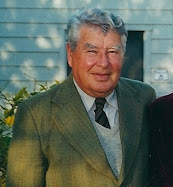Road to Gold Paved in Sweat

This thoroughfare was well worn by diggers in search of riches, writes Jenny Brown.
THE road is handsome now, lined in the main with interesting heritage shops and houses as it meanders up a ridge to broaden out at Essendon into one of Melbourne's grander boulevards.
In 1851, when news of the easily won gold at Mount Alexander (Castlemaine), Ballarat and Bendigo had begun to draw prospectors into the new state of Victoria, it was the very definition of the beaten trade
It is said three-quarters of all arriving diggers started their week-long tramp to the goldfields along Mount Alexander Road, which quickly became a dustbowl in the summer months and, according to one old digger, "a mere bog" in winter.
In the wet, "Mount Road", he said, "became a series of muddy holes and it was painful to see bullocks strain to pull their loads through the sticky mire".
It must have been amazing to see the foot traffic, too. Diggers moved in convoys for protection against bushrangers who haunted' the nearby ranges to the first camping place, at Queens Park in Essendon. This large, natural waterhole, surrounded by red gums, served for years as "a perpetual tent town', a scene of 100 campfires blazing through the night. "A lively camp."
The "mixed human stream" of hopefuls began as a trickle of types that John Sherer identified as "clerks, shop owners, doctors, lawyers, shepherds and sailors from all countries". The Chinese moved in long single files "at a half trot".
Five hundred sailors abandoned their ships in Port Phillip in late 1851. Several state parliamentarians left their new jobs. And almost all of the towns constabulary (38 of 40) deserted their posts to hump their heavy swags and push and pull their loaded handcarts and wheelbarrows along Mount Alexander Road.
Other transport was so prohibitively expensive that most excess equipment was quicldy abandoned en route. Bullockies could charge £150 a ton to take equipment to the fields, when gold was paying £4 an ounce.
By 1852, the traffic was so relentless that 1000 people a day were moving up the road.
One day, 3000 were counted crossing paths with the gold escorts who, in just 12 months, had brought 83,500 ounces of gold back down the track to Melbourne's coffers.
English author William Howitt noted "almost every man had a gun or pistols in his belt and a huge dog, half hound, half mastiff, led by a chain".
They shouldered bundles and bedding that weighed as much as a man and clanked and rattled with tin billies and panning dishes, "with their picks and spades tied together as they marched up country".
Howitt knew from experience that "there is no slavery to man and beast like that of getting up to the diggings".
Mount Alexander Road begins in Flemington. Melway 43 B1.

No comments:
Post a Comment